Total War: Star Wars and Warhammer 40k could be disasters, but I don't know if I can go back to the historical settings
Total War: Warhammer has ruined me.
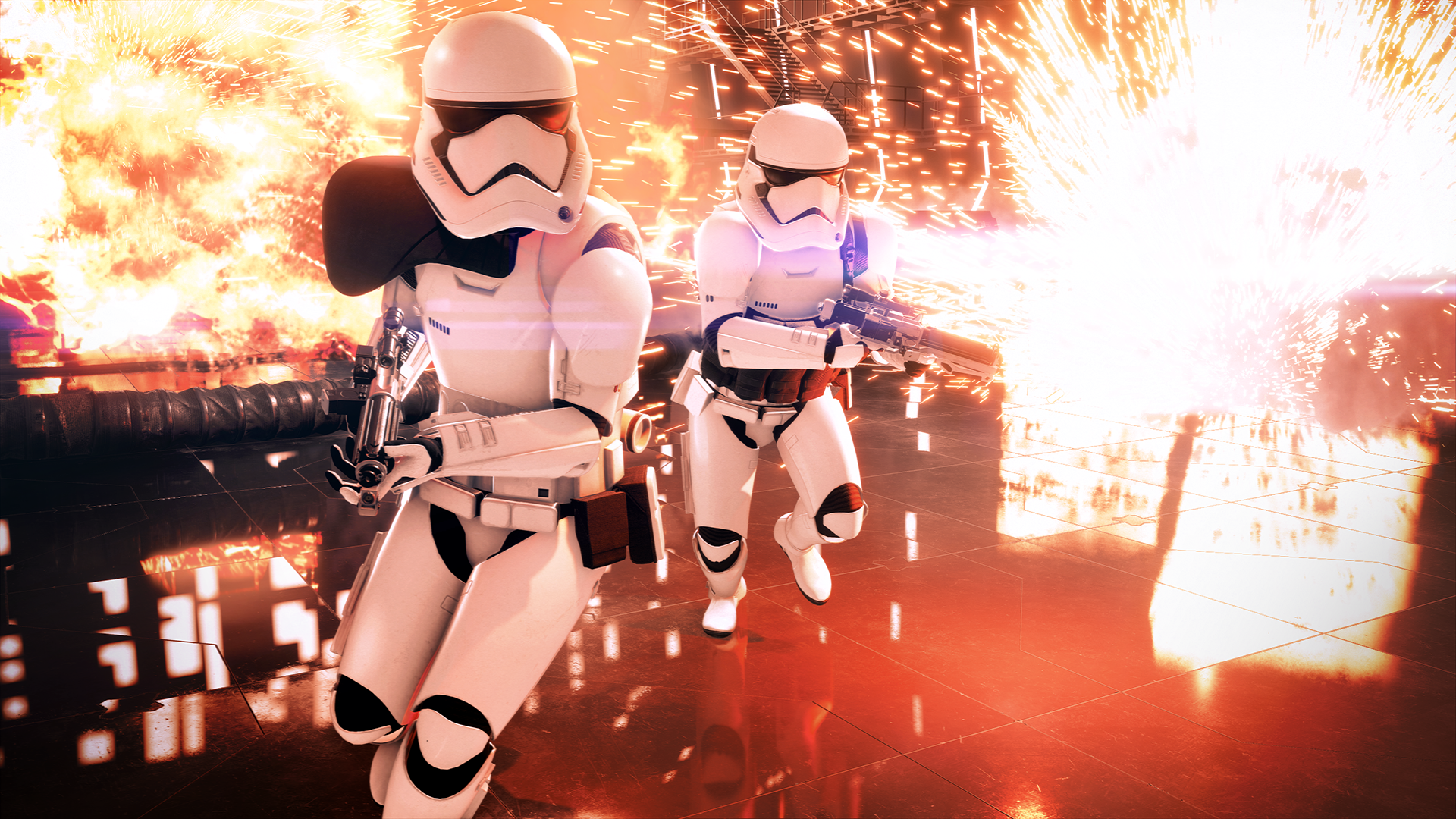
After not quite gelling with it the first time around, I recently returned to Total War: Pharaoh, largely prompted by the very positive write up from my strategy bud, Len Hafer. She reckons, thanks to the wide-ranging Dynasties update, it's become one of the best historical Total Wars. And it's a fair assessment, with Dynasties effectively turning Pharaoh into Total War: Bronze Age. But soon after getting stuck into my conquest of Egypt and the Near East, I bounced off it again. The problem? It ain't Warhammer.
This is an unexpected development. Total War's historical settings are one of the reasons I've returned to the series game after game, continuing a love affair that began with 2000's Shogun: Total War. When I was meant to be getting my Master's Degree in Classical Studies, I instead spent most of my time in Rome: Total War, reasoning that literally conquering the world with my legions was just as good as writing essays about them.
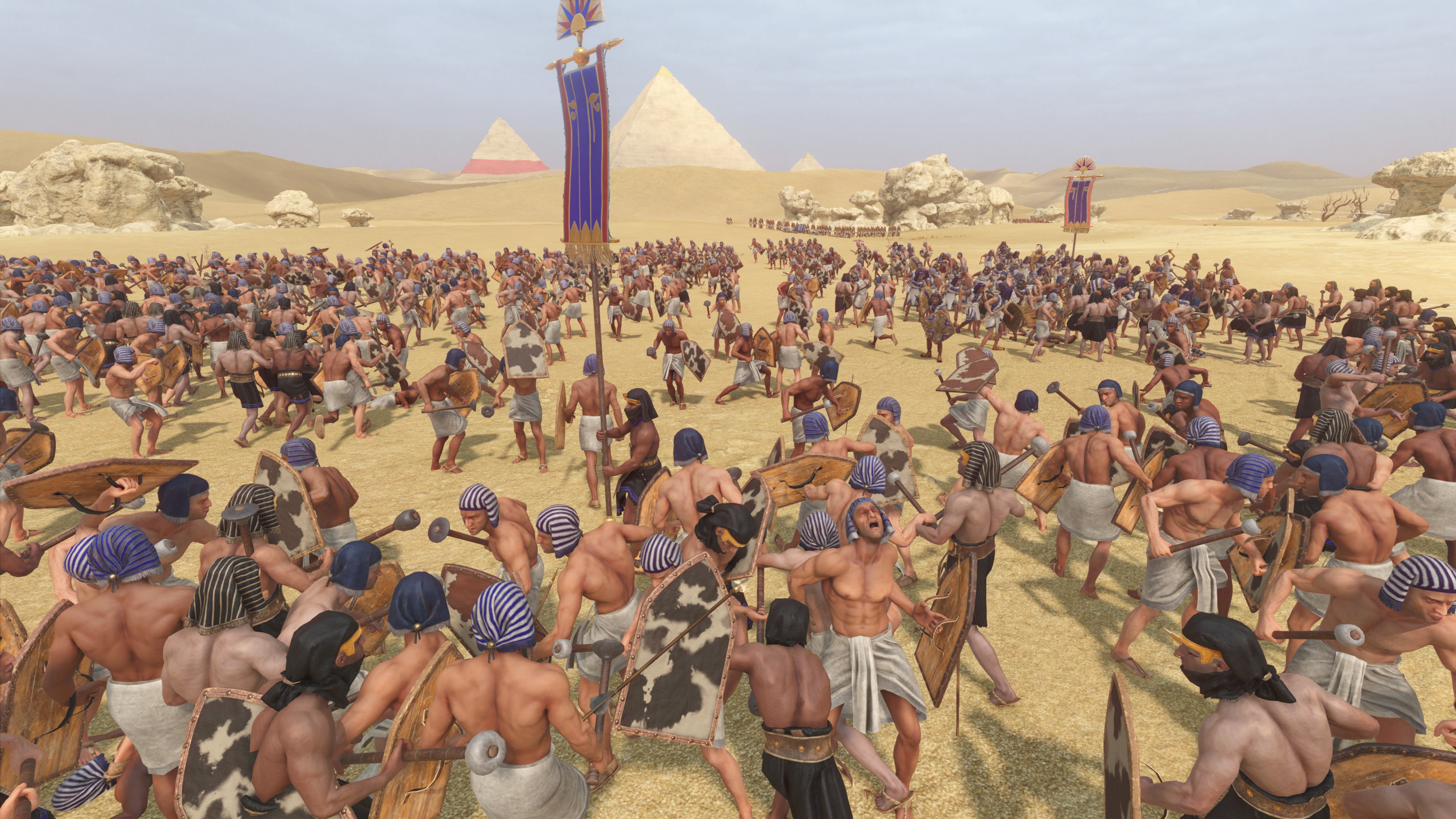
History is my jam. I read Thucydides for pleasure. If I'm in a new place, I will always find out if there's a castle nearby, and visit it immediately. And when I visited Rome for the first time (to actually play Total War: Rome 2), I spent an entire day giving myself a guided tour of the city (one of the few times my degree has come in handy), and was so entranced that I forgot to put sun lotion on. In June. During a heatwave. I burst into flames.
But Total War's turn to fantasy has been incredible. Unshackled from history, the series has been able to smash through its constraints and give its units bold identities, allowing them to shift the direction of fights through magic and infernal war machines. There is only so much you can do with a bunch of humans wearing period-appropriate armour and wielding the weapons of the day. You can fiddle with the stats, but ultimately you must work within strict limitations. A horse archer is a horse archer the world over. But when you can stick goblins on wolves and have medieval, chivalrous knights fighting war mammoths, things get a bit more interesting.
Total War: Three Kingdoms managed to find a middle ground between history and fiction, set as it is during a real period in China's history, but based on the 14th century novel, Romance of the Three Kingdoms. This gave Creative Assembly room to create a game that embraced legends and larger-than-life characters. Troy: A Total War Saga tried to do something similar, but struggled to find the right balance between fact and fiction—plus, it simply wasn't as good a game.
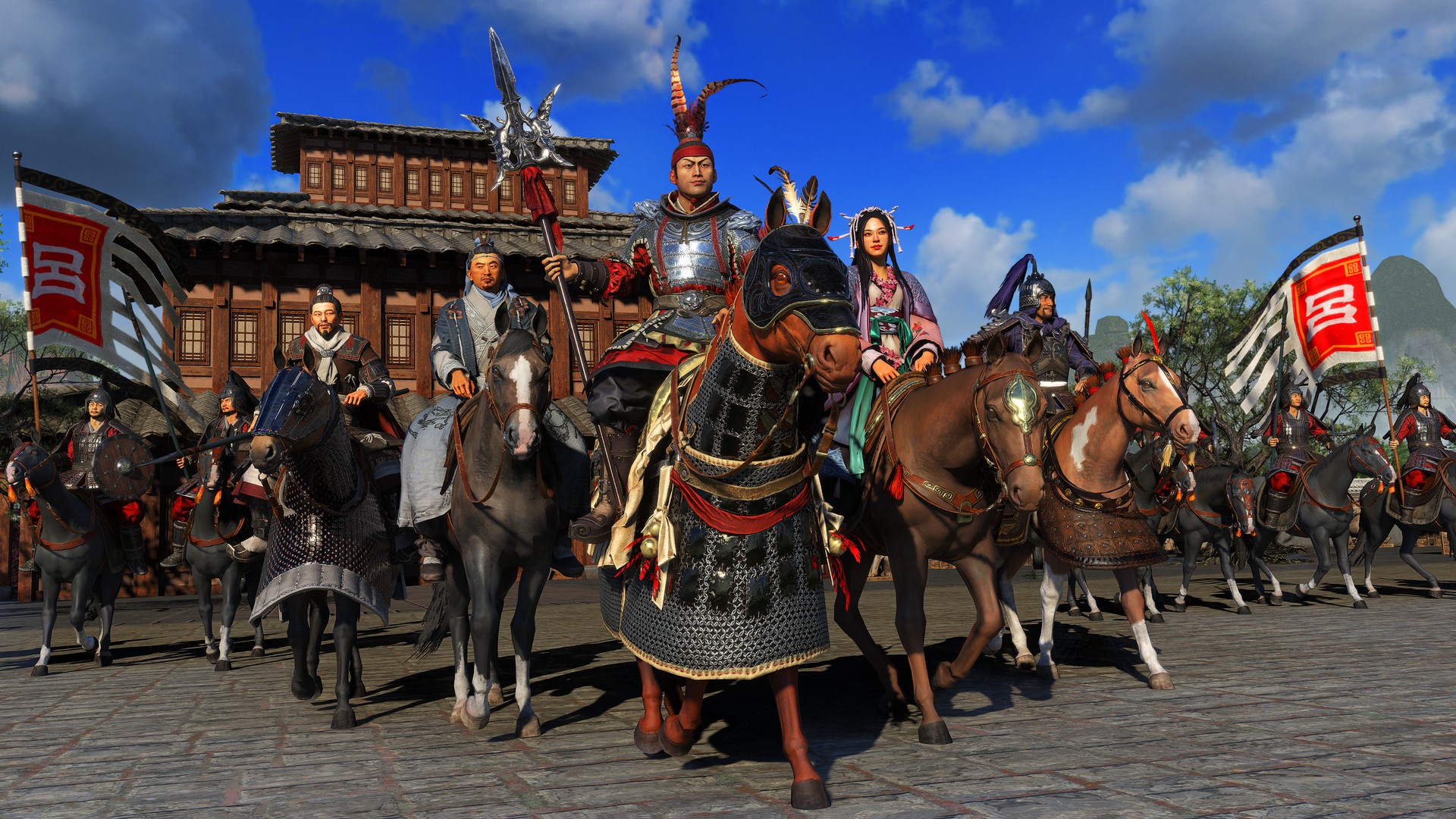
Some of Three Kingdoms' legacy can be found in Pharaoh, as well, as it plays with the more legendary side of history and explores things like the invasion of the Sea Peoples. But it's still absolutely more interested in history than fantasy, and that's understandable. Creative Assembly already has its fantasy series, and there are still plenty of players who'd rather conquer a more grounded world. It's just that I'm not sure I'm among them anymore.
I can't help but think about what happened with Empire: Total War.
This is one of the reasons why, against all good sense, I'm really hoping that the rumours and leaks about Total War: Star Wars and Warhammer 40k are true. But, oh boy, that would be such a huge risk for Creative Assembly, and I can't help but think about what happened with Empire: Total War.
Keep up to date with the most important stories and the best deals, as picked by the PC Gamer team.
Understandably, you might not see the connection between Creative Assembly's exploration of 18th-century warfare and a galaxy far, far away, or the grimdark universe of the 41st millennium. It springs to mind for two reasons, though: firearms and scale. Creative Assembly never quite managed to find a way to make its musket battles as compelling or thrilling as the messy clashes presented in its games set earlier in the historical timeline. Rows of dudes standing in fields politely shooting at each other—it just wasn't Total War. And the model they created was a bit basic, missing some of the actual nuance of early rifle combat.
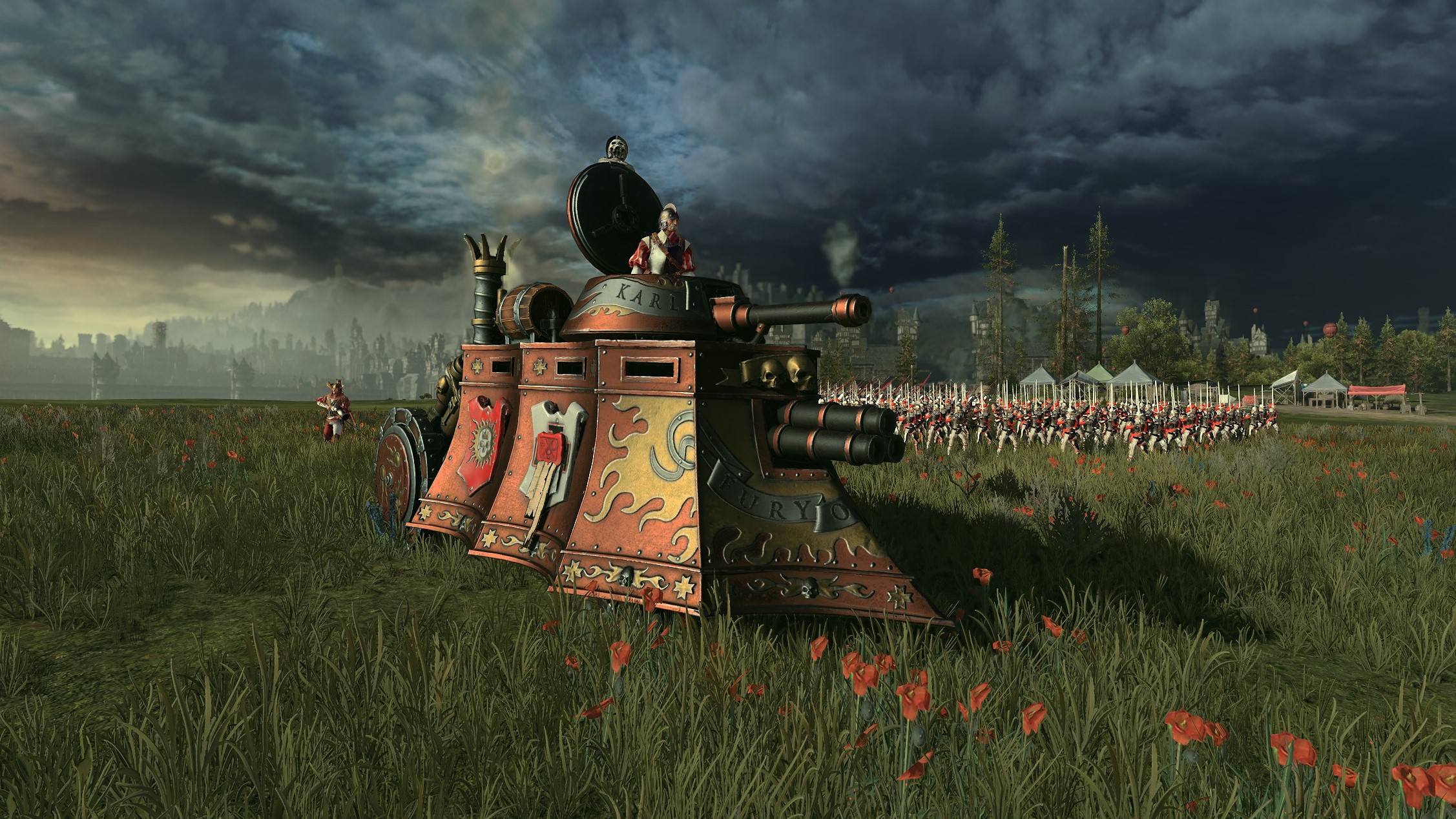
In both Star Wars and 40k games, guns are going to play a significant role. 40k still has plenty of melee combat, granted, but the bulk of its units will still have ranged capabilities. And while a lot of Warhammer fantasy units use firearms, the combat model is extremely different from the one we'd expect to see in Star Wars and 40k battles. One of the biggest differences is how much cover plays a role in the sci-fi scraps. While Creative Assembly has been making better use of terrain in its more recent games, it hasn't really toyed around with a proper cover system since the very basic one in Empire.
Cover will completely change the flow of battle, as well as demanding that Total War players completely throw out everything they know about fighting in these games. The same goes for, at least in 40k, the often smaller unit sizes. It's a very different scale, depending on what army you're fielding. Not that this is a bad thing: after more than 20 years, Total War could do with a shake up.
My other concern, scale, has at least partially been resolved by Immortal Empires, but I still worry a wee bit. Empire really struggled with having a whole world to play with, and split it up into different theatres of war, segmenting the globe. The AI was bad at handling it, along with a lot of other elements of Empire. Warhammer's Immortal Empires gives us a world unfettered by segmentation, however, and it's glorious. But it's just one world. Star Wars and 40k feature countless worlds. A galaxy-sized battlefield. It's a lot.
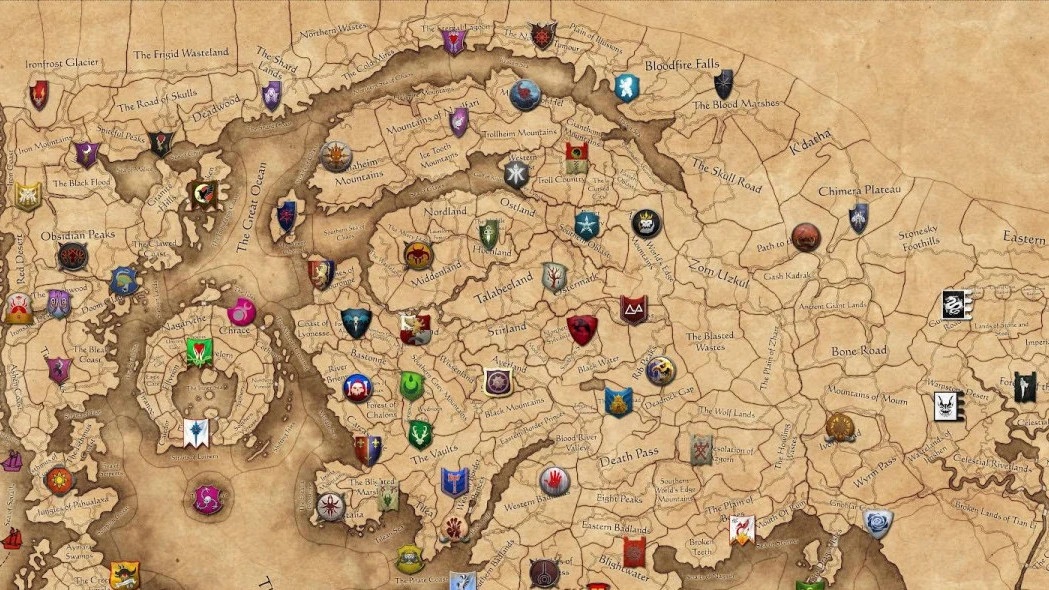
I can see how it might work, though. Planets could be major settlements and battlefields, space stations and moons could be minor settlements, but then you've just got the void in between them. Would there be space combat? Given how much I hate every single one of Creative Assembly's naval combat experiments, I'm not sure how I feel about that.
Whatever happens, the Total War model is going to need to be completely turned on its head. A change in direction like one we've never seen before. But that leaves me giddy with anticipation as much as it fills me with dread and doubts. Of course, it might never happen. Creative Assembly hasn't confirmed it's working on either game, but it's gotta be working on something.
The Warhammer trilogy has concluded, and the Sofia team has finished overhauling Pharaoh. So we've got two Total War teams presumably working away on two new games. My money is on Sofia staying on the historical stuff, while the other folks continue their experiments in adapting other universes.
So the good news is that folks like me, who have been ruined by Warhammer, will hopefully still get to have our fun, while the history diehards won't be left out in the cold. Everyone wins! Or at least they will if the games are any good. Fingers, claws and tentacles crossed.

Fraser is the UK online editor and has actually met The Internet in person. With over a decade of experience, he's been around the block a few times, serving as a freelancer, news editor and prolific reviewer. Strategy games have been a 30-year-long obsession, from tiny RTSs to sprawling political sims, and he never turns down the chance to rave about Total War or Crusader Kings. He's also been known to set up shop in the latest MMO and likes to wind down with an endlessly deep, systemic RPG. These days, when he's not editing, he can usually be found writing features that are 1,000 words too long or talking about his dog.

